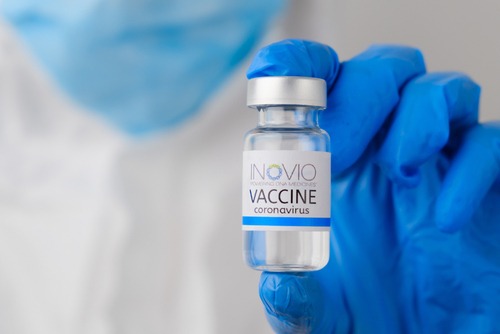
Moving quickly to address concerns raised by the Omicron COVID-19 variant, following its discovery last week, INOVIO announced it will evaluate two of its COVID-19 DNA vaccine candidates against the variant and has begun pre-clinical development of another specifically tailored to it.
Omicron was discovered in South Africa last week and prompted the World Health Organization (WHO) to designate it a variant of concern due to troubling mutations that may allow it to evade existing vaccines and become more transmissible. Since then, WHO added that all people at least 60 years old and those otherwise vulnerable to the disease should avoid travel for now.
In response, the biotechnology company INOVIO stated that its vaccine candidates INO-4800 and INO-4802 would be soon tested against the Omicron variant. Another candidate has been added to pre-clinical development and will progress if needed to meet the new threat.
“Both INO-4800, our lead candidate vaccine currently in Phase 3 testing) and INO-4802, our Pan-COVID-19 vaccine candidate, have maintained T cell responses and generated neutralizing antibodies against previous SARS-CoV-2 VOCs,” Dr. J. Joseph Kim, INOVIO president and CEO, said. “In particular, we believe that INO-4800’s ability to generate durable T cell responses, which could be resilient to changes in the SARS-CoV-2 virus, positions INO-4800 as a potentially important tool in the U.S. and international arsenal against both current and future variants.”
So far, INO-4800 has maintained T cell responses against the Alpha, Beta, Gamma, and Delta variants of SARS-CoV-2, the virus which causes COVID-19. It has also proven capable of generating binding and neutralizing antibodies against all four. Based on current data, Omicron mutations at the T cell level appear to be approximately 2 percent. These facts give INOVIO hope INO-4800 may maintain its usefulness against Omicron.
That candidate is currently in Phase 3 evaluations for use as a 2-dose regimen. INOVIO has also considered its use as a booster, given its tolerability, immunologic profile, and lack of an anti-vector response.




